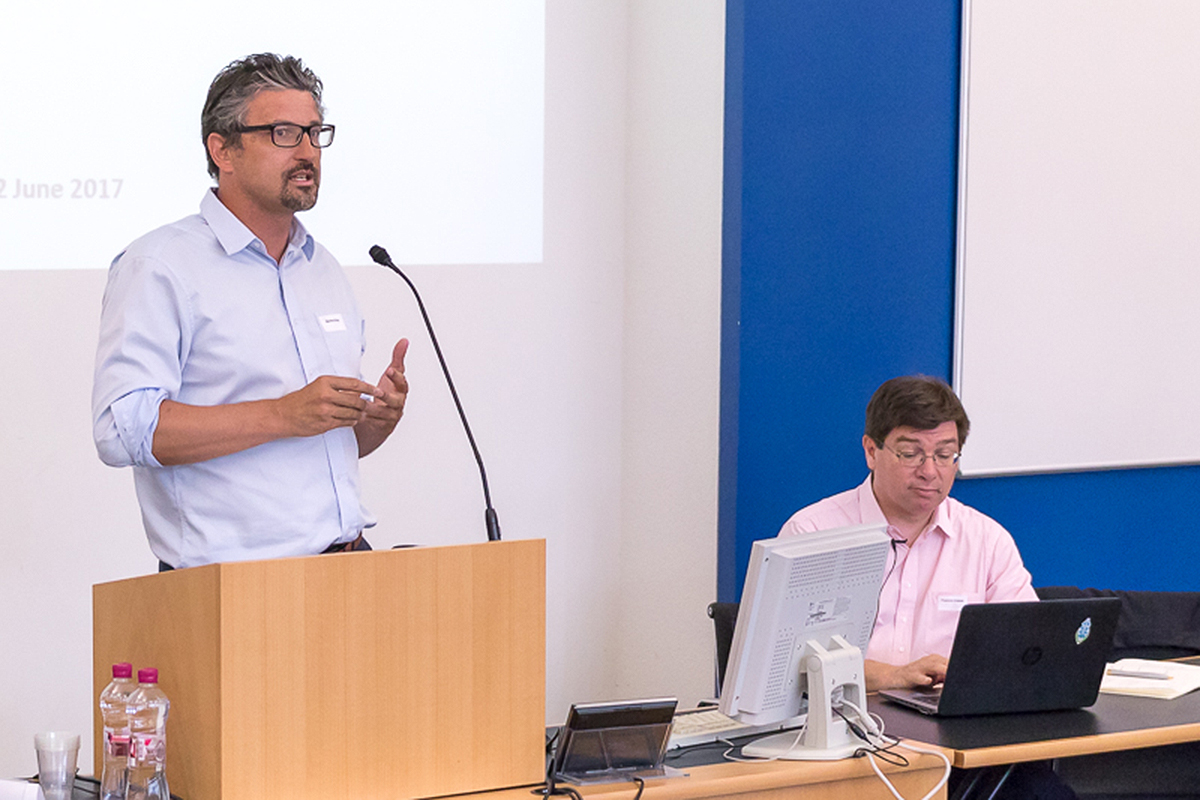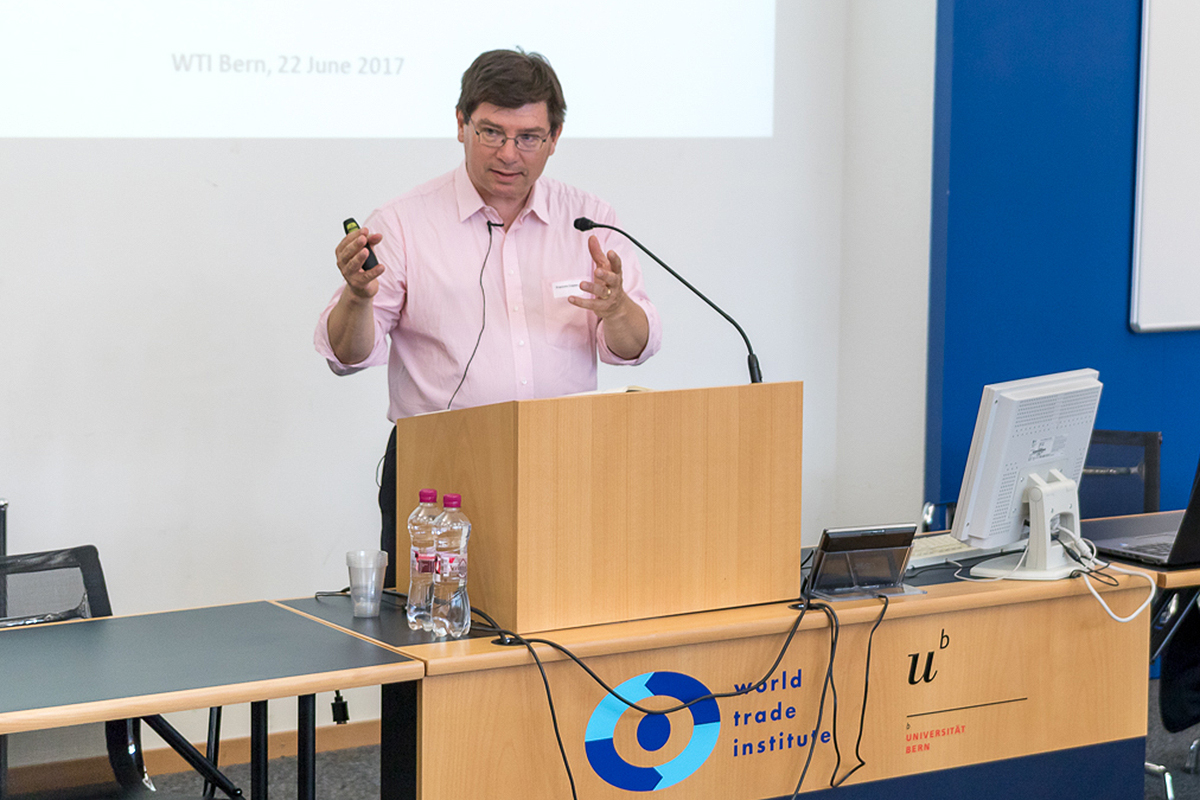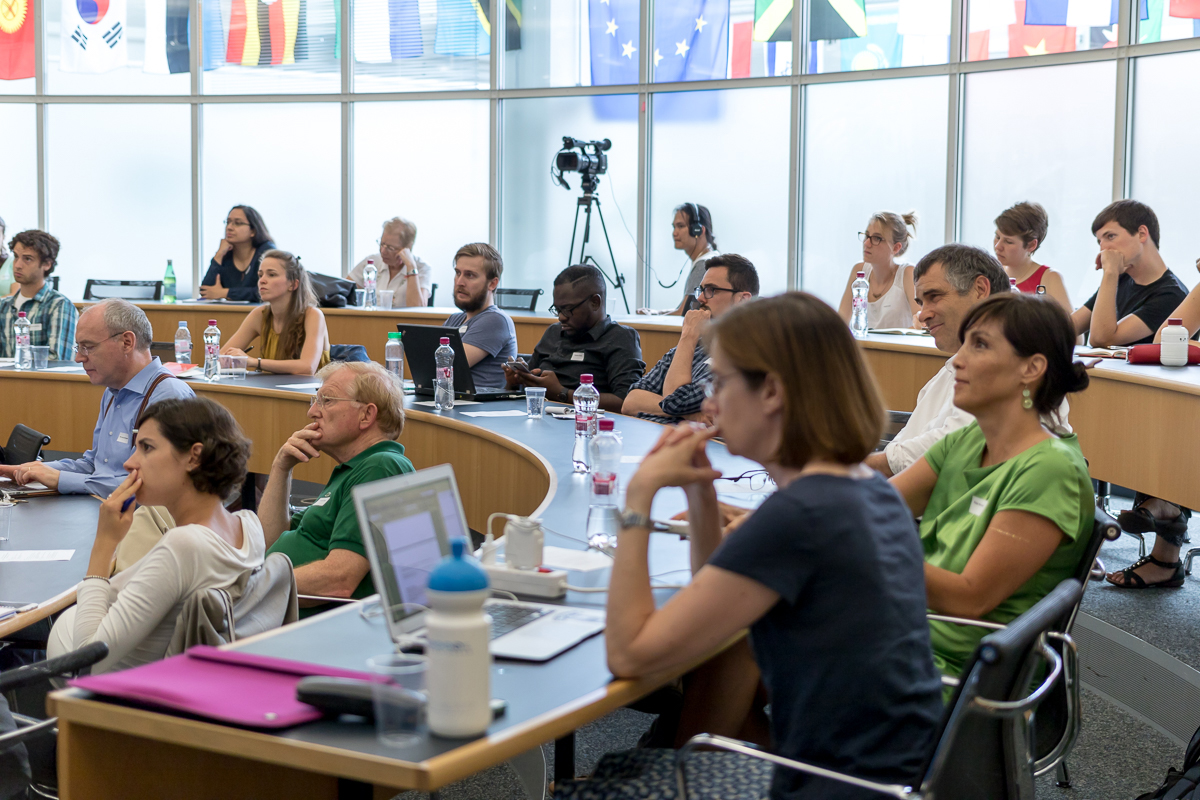Give migrants a voice, urges UN special rapporteur
Migration is part of the human condition – it is in our DNA – and it is time that we empower migrants by extending to them the same rights that we enjoy. This was the key message delivered by François Crépeau, UN Special Rapporteur on the Human Rights of Migrants, in a lecture on 22 June at the World Trade Institute (WTI) of the University of Bern.
François Crépeau, who is also a professor in public international law at McGill University in Montreal, Canada made his call for a principled response to migration challenges at the start of a conference on Populism and European Policies: The Challenges Ahead organised by the Swiss University Conference (SUK) and hosted by the World Trade Institute (WTI).

Migrants, unlike other marginalised groups in history – including women, indigenous peoples and gays and lesbians – do not vote. "In our electoral democracies migrants are politically invisible," Crépeau told the audience. It was through voting, and raising their voices, that women, gays and lesbians were able to change their position in society and win rights. Migrants cannot do this. If you cannot speak for yourself you need someone to do so for you. But for many politicians speaking publicly in favour of migration is not an option. "You don’t win votes this way," said Crépeau. On the other hand, populists can win votes through opposing migration.
In the UN special rapporteur's preferred definition, populism puts "faith in the 'decent', 'ordinary' or 'little' people over the corrupt political and corporate establishment, nationalist interests (Us) over cosmopolitanism cooperation across borders (Them), protectionist policies regulating the movement of trade, people and finance over global free trade, and xenophobia over tolerance of multiculturalism…" * Nationalist populist politicians rely on the legitimacy of their electoral majorities, he argues, and are not called to account for what they say or do regarding migrants, as citizens rarely mobilise on migrants' behalf. Neither is there support from the media. "You rarely see reports on the positive contribution made by migrants," Crépeau observed.
Words matter
This situation allows for a populist discourse based on myths that goes unchallenged in our society. And the words and images that nationalist populist politicians use, and that are picked up by the media, are part of the problem, he believes. Put simply: "Words matter".
We speak of immigrants as being "illegal", not as "workers" or "students" or "children". And we dehumanise them by focusing on an anonymous mass of incomers rather than on individuals. It is often a "liquid language" that we employ and that conveys a threatening image: We speak of tides, waves or floods of refugees. "I find myself using refugee 'flows' regularly, and have to tell myself not to," admitted Crépeau, who would prefer if we spoke of more neutral "refugee movements".

Another problem is the false understanding we have of migrants and the precariousness of their situation, the UN expert believes. The image projected is one of outsiders wanting to come and take advantage of a safe society. Yet for most it is the labour market – both regular and underground — that is the biggest pull factor. People come because jobs are available. These markets benefit from migrant workers but extend no security to them, Crépeau argues: "If we talk about undocumented workers, we always hear about them coming and stealing jobs. We never hear about the employers, the exploiters, who are committing an illegal act."
Reducing fear, lifting restrictions
Undocumented migrants violate administrative regulations, but this is not a crime. Instead of referring to illegal immigrants we should be talking about illegal employers, says the UN rapporteur. Trapped in these situations of exploitation, undocumented migrants do not protest or go to court. They have moved country in order to work and send remittances home. If they speak up they run the risk of being sent back, so they keep quiet. "We have to reduce the fear of speaking up against exploitation," said Crépeau. "The more we repress migrants, the more we push them underground into the hands of smugglers and unscrupulous employers."

So what should society be doing? A good start would be to lift restrictions on mobility, Crépeau argues. The special envoy outlined a set of proposals collectively known as the United Nations Agenda 2035 on Facilitating Human Mobility. This foresees offering regular, safe, accessible and affordable mobility solutions to all migrants, protecting the labour rights and human rights of workers, providing access to justice and basic services – including education and health – and offering protection from all forms of discrimination and violence.
This is the long-term vision. But the special envoy already points to signs of a "generational change" in our attitudes towards migration, with artists, the business community and youth all showing signs of a more inclusive attitude. And it is important to see the migrants too as part of the movement for change, he believes. Viewing migrants as agents of change, rather than as victims and criminals is a good first step in their empowerment. And empowerment means having a voice.
* Source for Crépeau's preferred definition of populism:
Ronald Inglehard & Pippa Norris (2016) “Trump, Brexit, and the Rise of Populism: Economic Have-Nots and Cultural Backlash”, Faculty Research Working Paper Series, John F. Kennedy School of Government
https://research.hks.harvard.edu/publications/workingpapers/Index.aspx
The Conference
The conference on Populism and European Policies: The Challenges Ahead was hosted by the World Trade Institute (WTI) on 22-23 June within the framework of the SUK Programme on Law, Ideas and Politics, and in cooperation with the University of Fribourg, Faculty of Law, and the University of Bern, Faculty of Philosophy. It was the final event of the programme begun in 2014. François Crépeau, who took part in the conference, was in Bern at the invitation of the WTI's Migration as a Common Concernproject and the Swiss Civil Society Platform on Migration and Development.
The WORLD TRADE INSTITUTE (WTI)
The World Trade Institute (WTI) is a leading academic institution dedicated to graduate-level studies, research and outreach activities on international trade regulation and investment. As a centre of excellence at the University of Bern, it explores the interconnections between the fields of law, economics and political science. Since 2005 the WTI has conducted research within the National Centre of Competence in Research (NCCR) Trade Regulation funded by the Swiss National Science Foundation. The NCCR aims to clarify how the world trading system functions and to explore the drivers of fragmentation and coherence. In autumn 2017 the NCCR will be completed with the World Trade Forum in Grindelwald.
ABOUT THE AUTHOR
Morven McLean works as a web editor at the World Trade Institute.